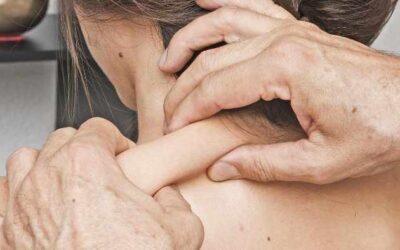by Brent Hearn •
In 2021, daylight saving time will end at 2:00 a.m. (local time) on November 7th. The switches to and from daylight saving time spark many strong opinions, which is understandable. There are energy considerations to debate and economic considerations to squabble about, not to mention just good old-fashioned competing preferences. However, we’re going to limit our focus to the health concerns associated with “falling back.”
The Good News
To be fair, a better heading might be “The Better News,” as the ticks in the pro column are tempered with caveats. The first bit of better news is a no-brainer—and also why the autumnal time shift enjoys more favor among many people than the (almost) springtime spring-forward. We get to enjoy an extra hour of sleep. (If you’re wondering how catching a bit more shut-eye could possibly have a downside, be patient. We’ll get to that.)
The second bit of “better” news is that, though the fall time change is disruptive, it’s not as disruptive as the beginning of daylight-saving time. The sleep deprivation tied to springing forward has been linked to a 6% increase in fatal traffic accidents and an 18.7% increase in healthcare goofs likely due to human error, so comparatively speaking, “falling back” doesn’t seem so bad. And while we’re talking comparisons, here’s another sobering one. Two studies concluded that while the risk of a heart attack increased up to 25% on the Monday following the beginning of daylight-saving time, it fell by 21% when the time shifted back.
The Bad News
Though it makes sense to blame the sleep deprivation that accompanies the beginning of daylight-saving time for many of its health woes, it can’t take all the blame. Simply put, when it comes to our bodies, ANY time change is bad. As it turns out, our circadian rhythms—the complex processes that govern our response to light and dark—don’t really care what the law says about how we’re supposed to measure time.
Yes, springing forward catches most of the heat for its associated sleep deprivation (and accompanying negative consequences). But as mentioned earlier, that extra hour of sleep isn’t free. It still marks a “circadian desynchronization,” which is fancy science talk for our bodies saying, “What the hey, buddy?” and our sleep schedule being knocked out of whack.
The proof? Though they’re not as severe as the beginning of daylight-saving time, the fall time change is still linked to health woes. An increase in substance abuse risk in males over 20 is roughly the same for both changes, and there’s still a 5% increase in patient safety incidents as a result of the fall change.
What You Can Do
There are some steps you can take to make the transition out of daylight-saving time a bit smoother.
- Don’t rely on substances to regulate the effects of the time change.
We’re not saying they don’t have their place under the right circumstances, but alcohol, caffeine, and sleep aids are no substitute for healthy habits. - Manage your exposure to light.
Get some extra sunlight the day before and the days after the time change. Try to steer clear of bright light. And you probably already know this but reduce that screen time! - Exercise!
As with sunlight, make some time to exercise the day before and the days following the switch. It’ll help “wear you out” and prepare you for a good night’s sleep. - Begin to slowly adjust your sleep schedule a month in advance.
Though it may be too late for this year’s time change, it’s something to keep in mind for the future.
Sources
https://www.npr.org/2021/11/01/1050492391/daylight-saving-time-history-what-you-need-to-know
https://www.usnews.com/news/health-news/articles/2021-03-12/the-dangers-of-daylight-saving-time
https://pubmed.ncbi.nlm.nih.gov/32789617/
https://www.cell.com/current-biology/fulltext/S0960-9822(19)31678-1
https://abc7.com/daylight-savings-time-saving-dst-2021-when-is/11186017/
https://www.nationalgeographic.com/science/article/daylight-saving-time-2016-why-change-clocks
https://www.latimes.com/health/la-he-fall-time-change-20161031-story.html









 ▶︎
▶︎  Why is the Discount Challenge prize amount $15,024? Because that is the average “per-occurrence” fine for Medicare inducements. That’s not $15,024 per patient, that’s not per provider, that’s PER VISIT. Stinks, doesn’t it? To us, the prize amount is worth the investment if we can help our profession better understand proper discounting.
Why is the Discount Challenge prize amount $15,024? Because that is the average “per-occurrence” fine for Medicare inducements. That’s not $15,024 per patient, that’s not per provider, that’s PER VISIT. Stinks, doesn’t it? To us, the prize amount is worth the investment if we can help our profession better understand proper discounting.